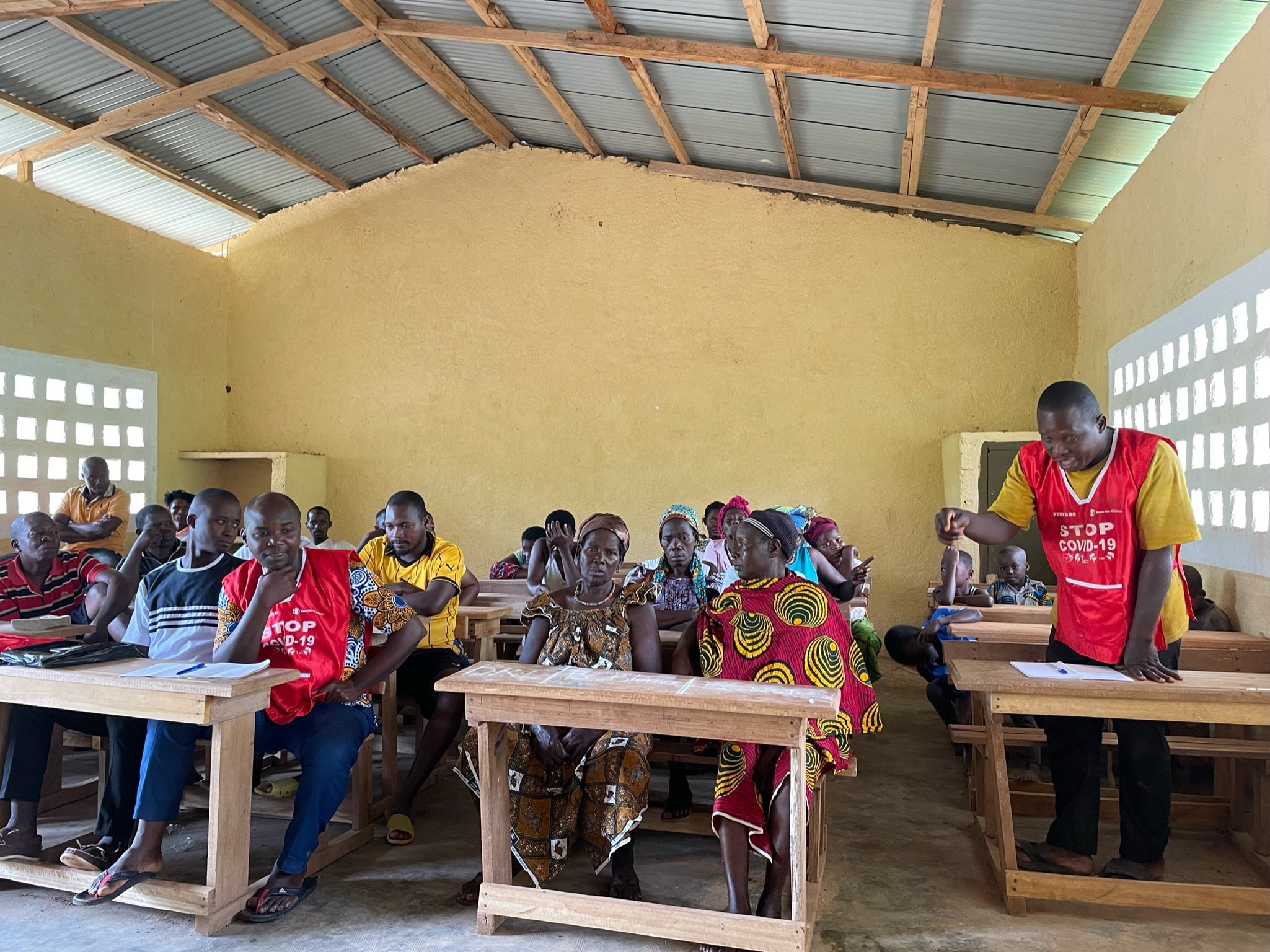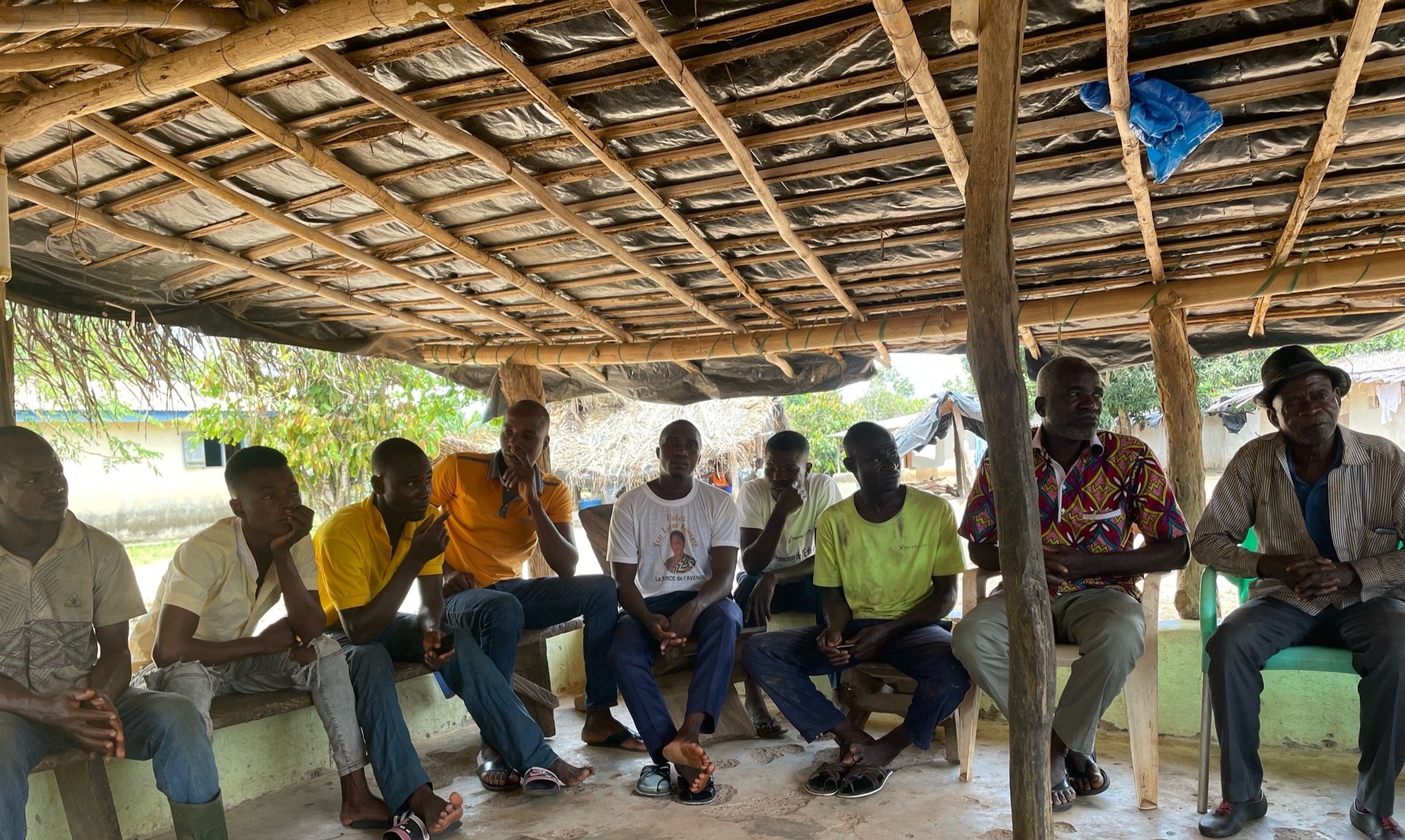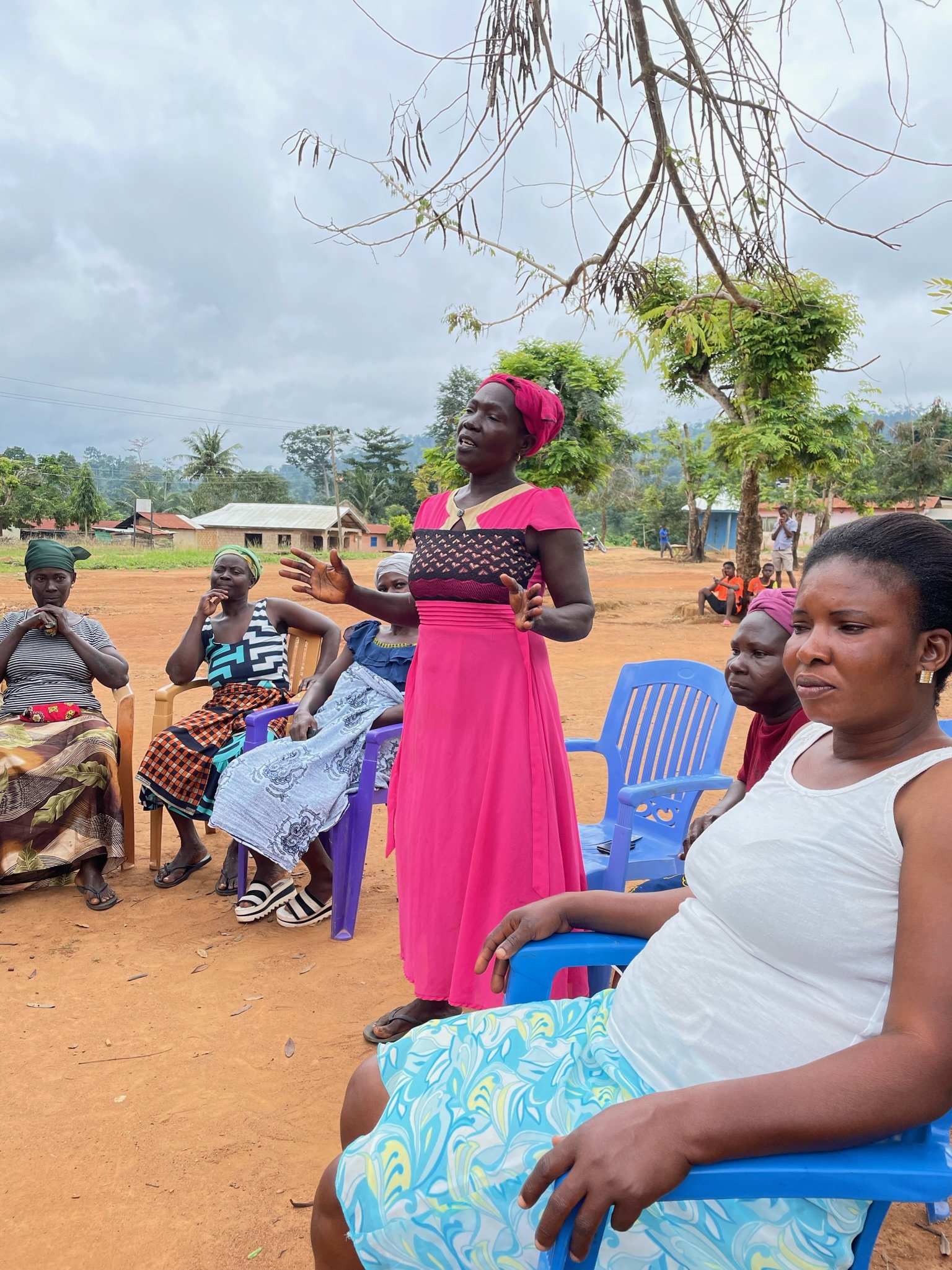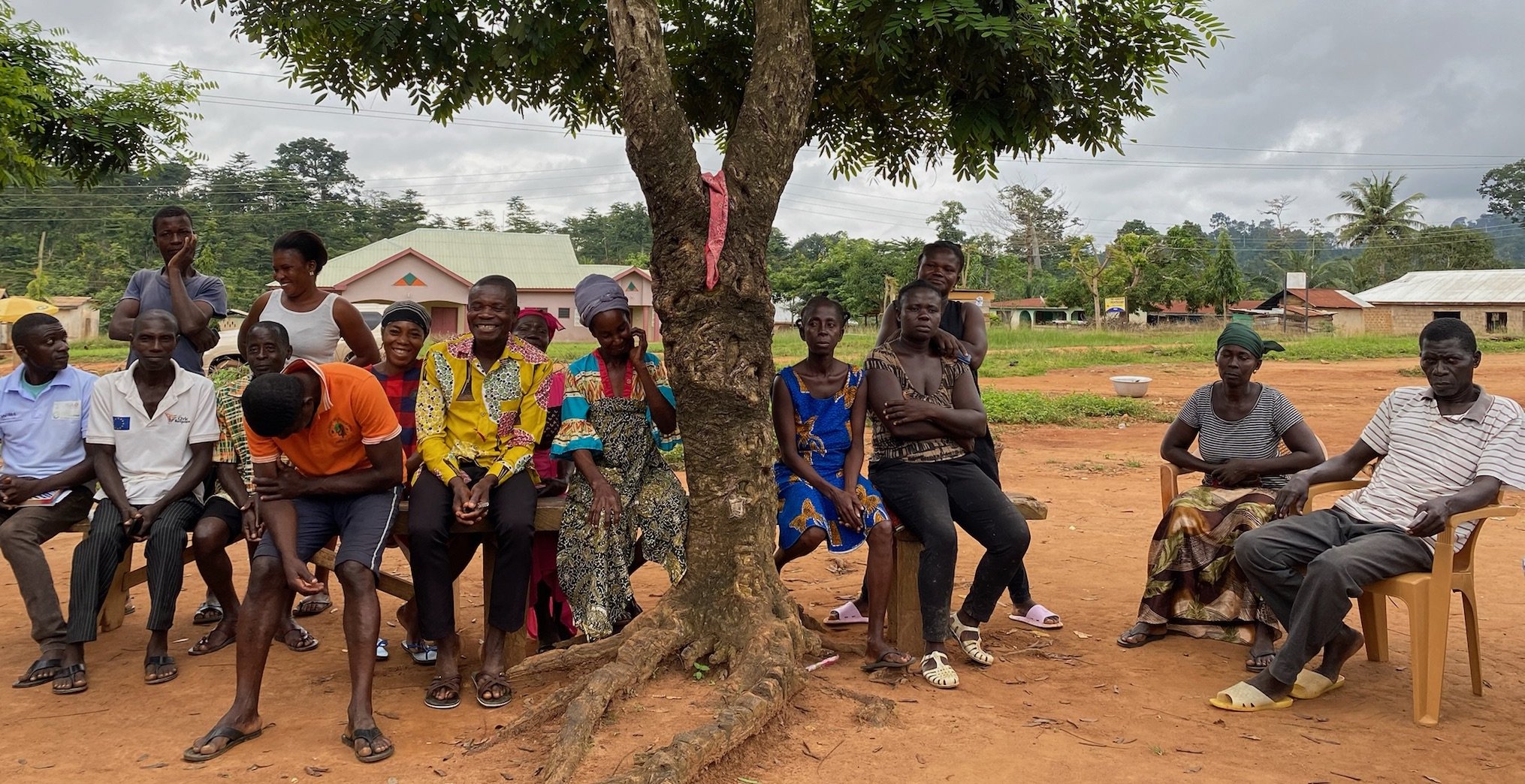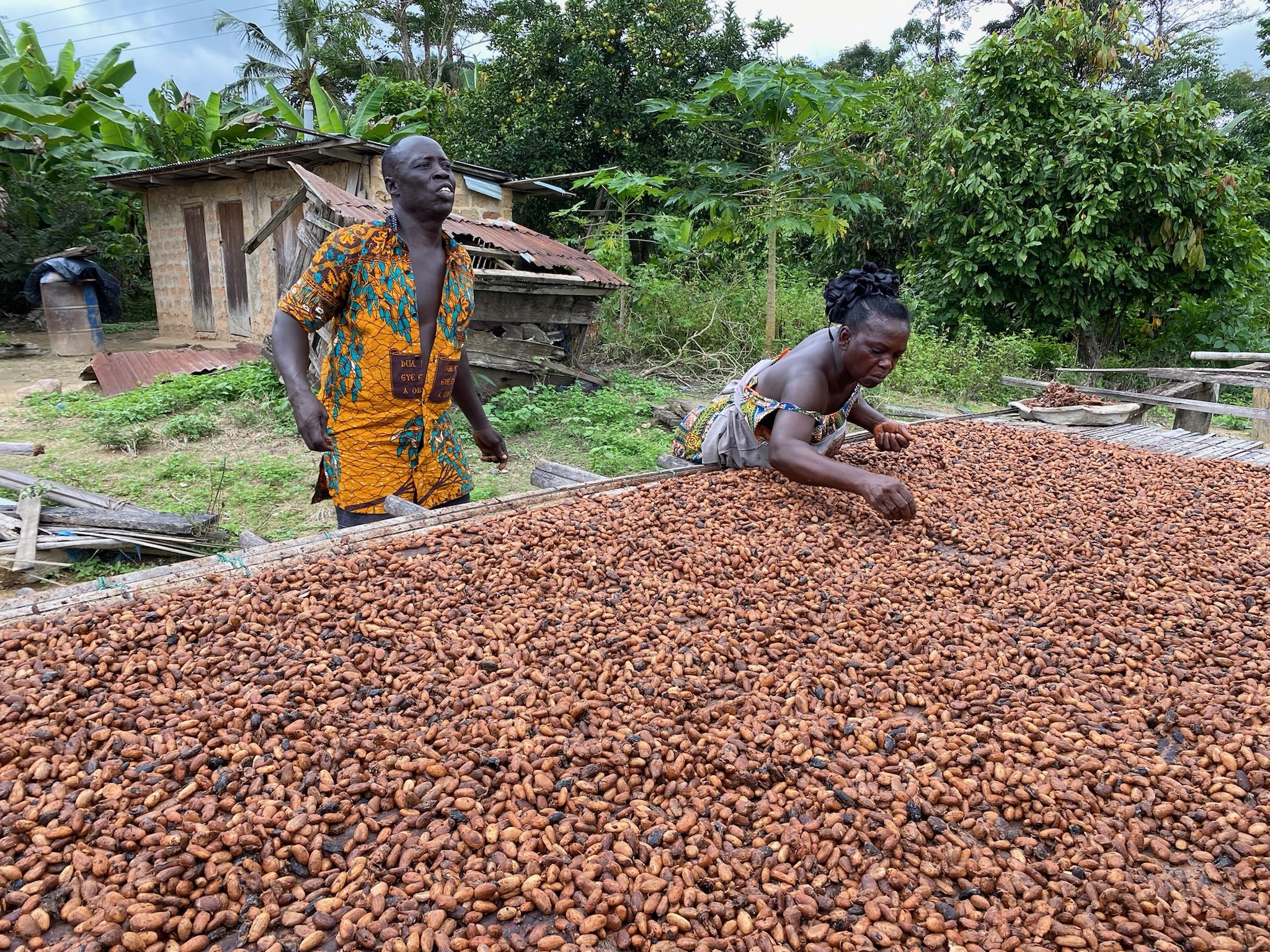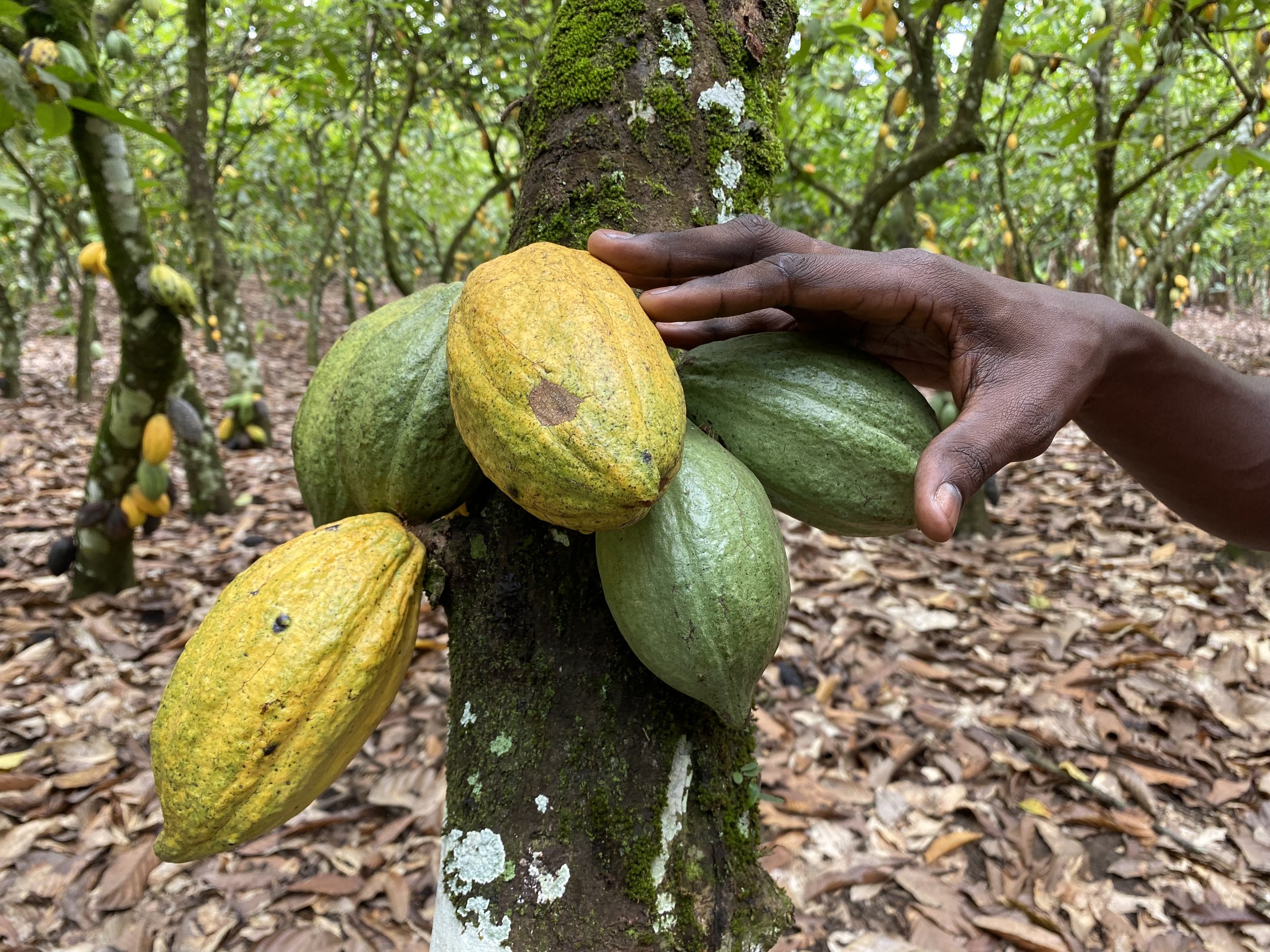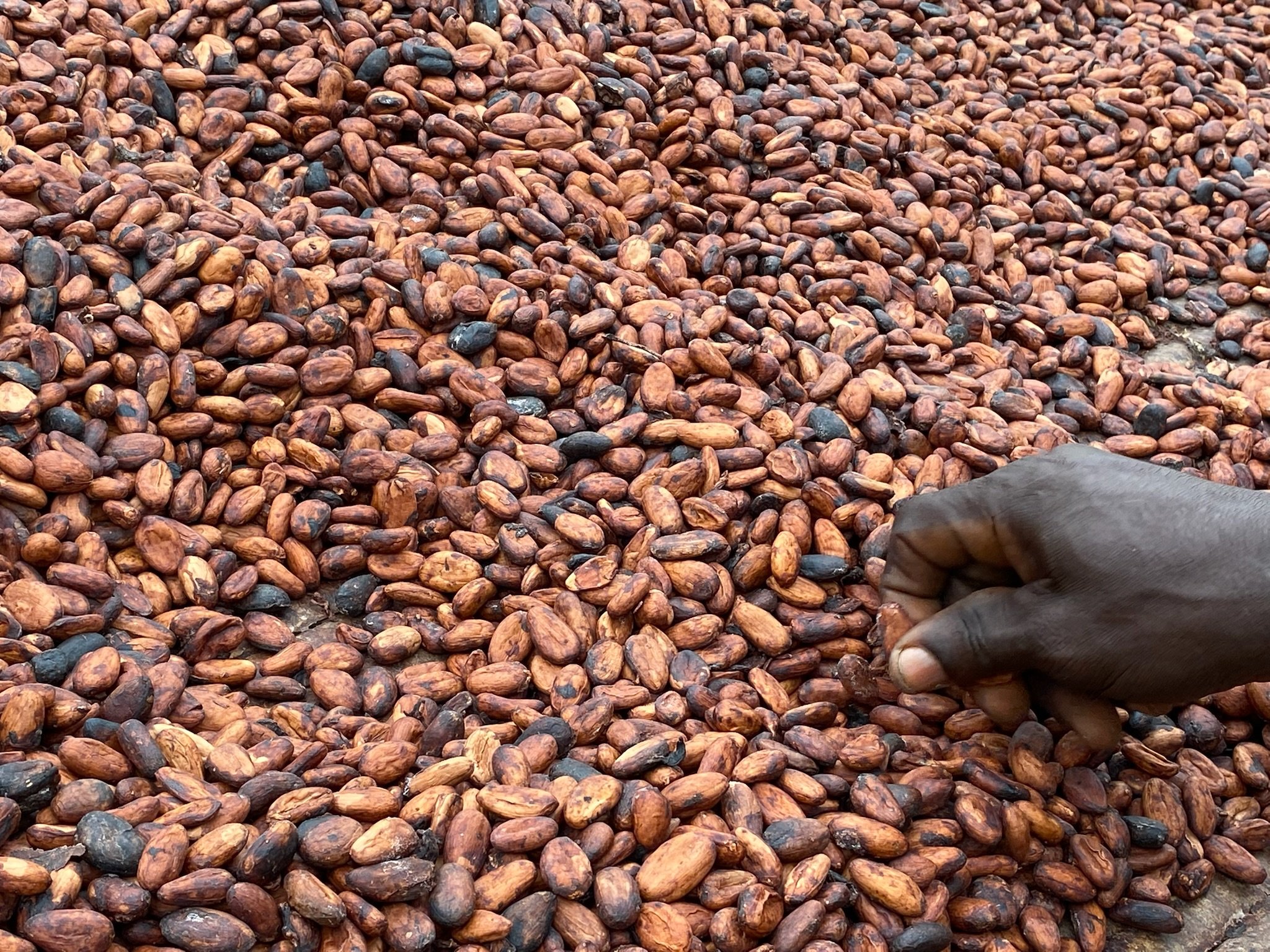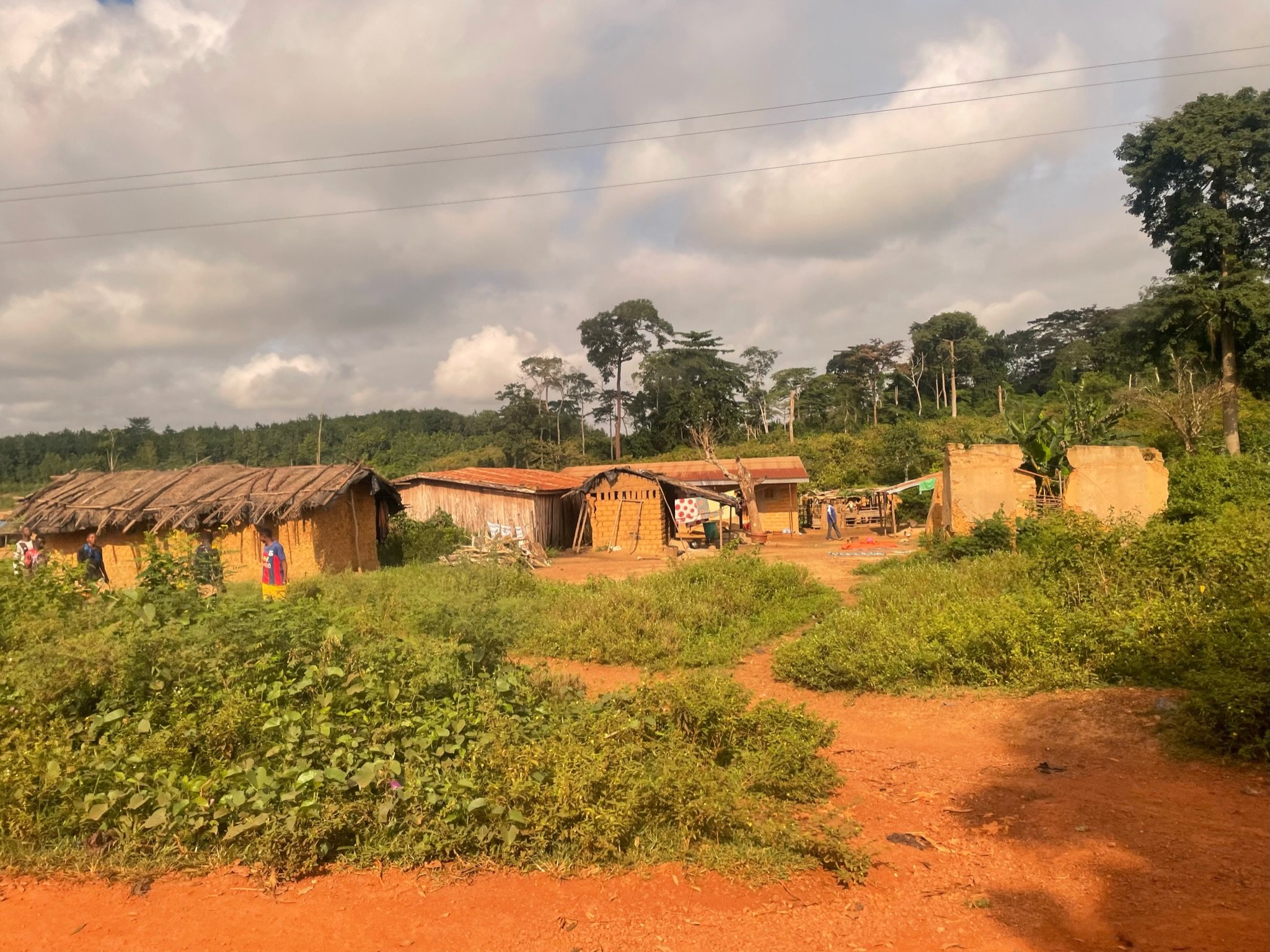“There will be no more cocoa here”
how companies are extracting the west african cocoa sector to death
September 2023
In 2022, chocolate companies brought in $206 billion in revenue, and the industry is projected to generate as much as $263 billion in revenue by 2030. And yet, cocoa farmers often earn far less than the World Bank’s poverty threshold: $2.15 per day in 2022.
The prices companies pay for cocoa are so low that farmers often cannot hire adult workers and instead must rely on their children or, in some cases, trafficked children, for help doing the work that cocoa cultivation requires. This failure by companies to pay a fair price for cocoa contributes directly to the human rights and environmental harms that characterize the West African cocoa sector – and despite promises by many of the largest chocolate companies over two decades ago to clean up the sector, little has changed. Cocoa farmers still earn far below a living income, hazardous child labor remains common, and child trafficking still exists despite efforts by West African governments to combat it.
Cocoa farming communities in Côte d’Ivoire and Ghana face threats from all directions: companies pay exceedingly low prices for cocoa and navigate around price regulations; diseases decimate cocoa trees, making it even harder to live off cocoa farming alone; and illegal gold mining continues to take over and seep toxic chemicals into the land that cocoa farmers depend on.
In September 2022, Corporate Accountability Lab (CAL) visited nine cocoa-growing villages across Côte d’Ivoire and Ghana – the two West African nations that collectively produce two-thirds of the world’s cocoa. CAL staff spoke with tribal leaders, cocoa farmers and their families, hired workers, and village members who were either directly or indirectly dependent on the cocoa sector for survival. In each village visited, farmers and workers spoke about the unsustainably low prices companies pay for cocoa and companies’ failure to pay the Living Income Differential (LID), a government-mandated price increase designed to ensure farmers received a higher price for the cocoa they sold. Details about the challenges and hazards of relying on cocoa for a living varied between countries and villages, but there was remarkable consensus – among more than 300 farmers – that a fair price for cocoa is at least triple the current price.
Cocoa farmers and their families requested that their stories about the reality of cocoa farming be brought to the broader public: the poverty, the hard work, the difficulty paying for children’s schooling and hiring workers, the corruption within the supply chain, and the dire impact of tree-decimating diseases. In many villages, CAL staff also spoke with smaller groups of women who were eager to talk about their lives – especially details that were missing from the broader conversations in which men typically dominated. This report tells these stories, which centered on the following topics:
Farmer Poverty: How Companies Exploit Impoverished Farmers for Profit
The farmgate price, set by the governments of Côte d’Ivoire and Ghana, is the lowest legal price companies can pay for cocoa. This price floor remains far too low. Despite decades of discussion and handwringing about the issues facing the cocoa sector, little has changed. Farmers continue to earn poverty income, often below the World Bank’s poverty line. As a result, farmers struggle to pay hired workers and often rely on their own children – and in some cases, on trafficked children – to harvest the cocoa needed to survive. In 2022, farmers across Côte d’Ivoire and Ghana reported that they required about a three-fold increase in price to earn a living income.
Invisible Stakeholders: Women, Children, and Hired Workers
Although cocoa farmers are generally portrayed as men, women and girls work on cocoa farms and do much of the same work as men – planting, weeding, cutting pods from the trees and opening them with machetes, and drying and fermenting beans. But as one woman we spoke with explained, “as a woman,” she not only does the same hard work as the men during the day but then comes home to do more work while the men rest. As is true across the globe, women engage in income-producing activities and are also primarily responsible for unpaid care work including child rearing, cooking, and cleaning, which make the income-producing activities possible.
Children also carry out significant work on cocoa farms in Côte d’Ivoire and Ghana. Child labor, including hazardous child labor, is a direct result of the poverty prices companies pay cocoa farmers for their cocoa. One farmer CAL staff spoke with said this explicitly, explaining that their children would be at school if they had more money. The prevalence of hazardous child labor is visible, with young children – including eleven- and twelve-year-olds – walking on the roads in the mornings, swinging machetes. These children are conspicuous, as they are not dressed in their school uniforms (common in both countries), as many of their peers are, despite an impressive increase in school attendance over the past decade.
Hired workers are some of the most invisible members of the cocoa supply chain. Most analysis of human rights abuses in the West African cocoa sector focuses on adult farmers and child laborers. Little research has been done on hired workers, including who they are, from where they travel, and how much they earn. What is clear, however, is that these individuals are often among the most vulnerable workers – relying on payments from farmers who themselves earn very little. From conversations with farmers in both Ivorian and Ghanaian villages, hired workers seem to earn just over $1 a day.
Threats to the Survival of Cocoa Farms: Tree Disease and Gold Mining
Farmers and communities reported that both swollen shoot disease and gold mining presented existential threats to cocoa-growing. Swollen shoot disease – spread by invisible mealybugs – has been harming cocoa trees for decades but has hit western parts of Côte d’Ivoire harder in the past decade. Across both Côte d’Ivoire and Ghana, farmers see their cocoa trees decimated.
Illegal gold mining, known as galamsey in Ghana, is also harming and destroying cocoa farms. Gold mining is a growing threat to cocoa farms in Ghana, although less so – for now – in Côte d’Ivoire. Both the Ghana Cocoa Board, known as COCOBOD, and the General Agricultural Workers’ Union (GAWU) have stated that galamsey is the largest threat to cocoa farming. Farmers, especially in Ghana, said that they are worried they will lose their land to galamsey.
Cocoa farmers face a litany of challenges and threats to their livelihoods. While they are paying the price – literally, by being underpaid – and bearing the risk of a bad harvest or impacts from swollen shoot disease or nearby gold mines, cocoa and chocolate companies continue to earn record profits. It is time – far past time – for this to change. Companies must pay farmers a fair living income, compensating them for the hard work that they do. As it is, cocoa and chocolate companies rake in profits that do not represent the industry’s true costs of production. Farmers perform the labor that makes the main ingredient in chocolate and are owed a proportionate share of the billions of dollars in revenue companies earn from this labor.
FOR COMPANIES
-
Companies must immediately pay the full Living Income Differential (LID) and the Ivorian and Ghanaian country premiums. Companies must also go beyond the government-mandated price floor to ensure farmers are paid an actual living income – suggested by farmers in September 2022 to be triple the current rate – and that this full amount reaches farmers. At a minimum, farmers must be paid $3,166 per metric ton in Côte d’Ivoire and $3,116 per metric ton in Ghana. These prices are aligned with recent calculations of a living income in each country and come close to triple the rate farmers reported receiving in 2022.
-
Farmers bear the burden of market volatility, whether driven by commodity prices or by changes in demand. This generates economic precarity and indebtedness, which both contribute to creating conditions of forced labor. Long-term contracts distribute risk to supply chain actors who are better situated to absorb it, resulting in greater stability across the supply chain.n text goes here
-
Companies must publicly release information about cooperatives, pisteurs, and farms from which they source, including in their indirect supply chains. If companies do not currently have this information, they must take immediate steps to trace their supply chains down to the farm level and make this information publicly available. This is especially important to ensure that companies are not buying cocoa produced in deforested regions of Côte d’Ivoire and Ghana.
FOR THE IVORIAN AND GHANAIAN GOVERNMENTS
-
As producers of two-thirds of the world’s cocoa, Côte d’Ivoire and Ghana must continue to leverage their market power in the cocoa industry to push companies to pay the LID, the country premium, and to move towards paying a living income. The Ivorian and Ghanaian governments must also work with the Nigerian and Cameroonian governments to ensure that companies pay a fair price to all cocoa producers in West Africa.
-
This includes ensuring that the cocoa that companies buy is not from deforested areas and that farmers are paid the farmgate price – as a bare minimum – for their cocoa. Because rates of deforestation and the price of cocoa are closely linked, improvement in the lives of farmers and the health of Ivorian and Ghanaian forests will require simultaneous regulation of both the price companies pay for cocoa and the land from which the cocoa is sourced. n text goes here

